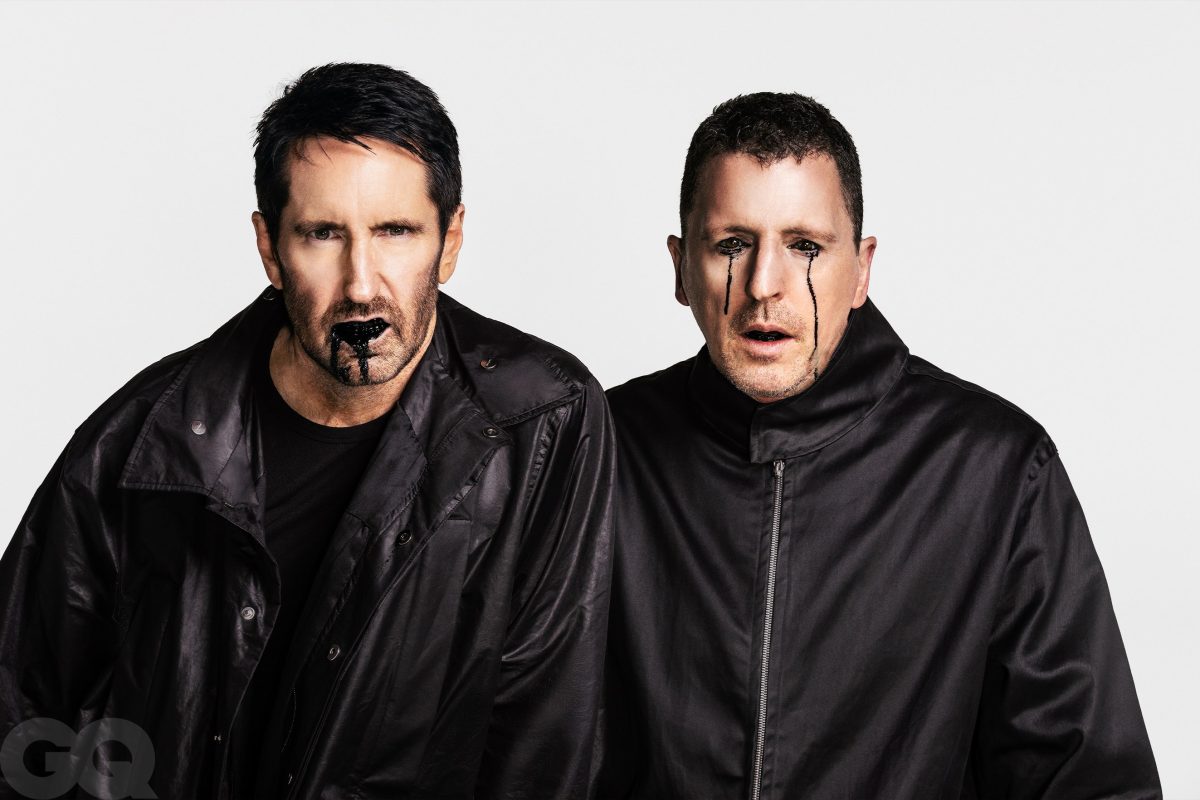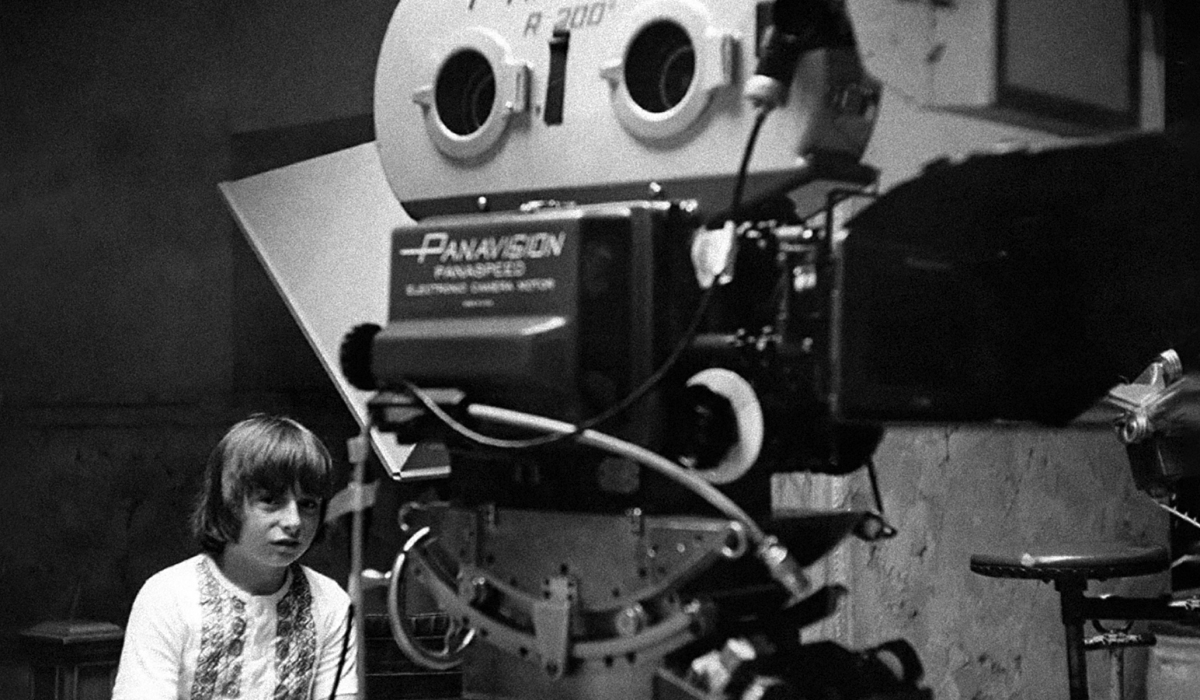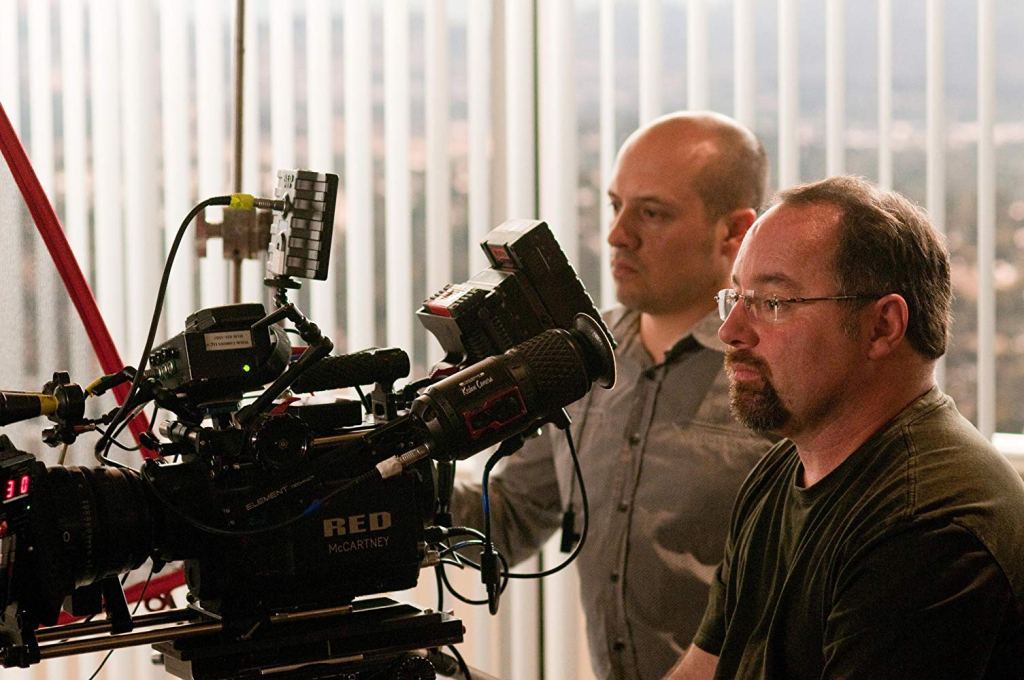Trent Reznor and Atticus Ross—best friends and Nine Inch Nails bandmates—found unlikely creative fulfillment (and a couple of Oscars) by reassessing what they had to offer as musicians. Now they’re thinking even bigger, and imagining an artistic empire of their own making.
By Zach Baron
Photography by Danielle Levitt
April 4, 2024
GQ
Every weekday, Trent Reznor makes his way from his house, a cottagey sprawl behind a white wall in a canyon on Los Angeles’s Westside, to a studio he’s built in his backyard. There he meets his best friend, bandmate, and business partner, Atticus Ross, and they get to work. Reznor and Ross observe the same hours, Monday through Friday, 11 a.m. to 7 p.m. “We show up,” Reznor told me. “We’re not late. We’re not coming in to start to fuck around.” It’s a methodical, orderly existence that Reznor could not have foreseen in the ’90s, when he was fronting Nine Inch Nails and struggling with a drug-and-alcohol problem that was his answer to success. “I would do anything to avoid writing a song,” Reznor said. “I’d rewire the studio 50 times.”
Now Reznor has a wife, Mariqueen Maandig, five kids, and multiple jobs. He is sober. Since 2010, when the director David Fincher asked Reznor and Ross to score The Social Network, for which Reznor and Ross won an Oscar, the two men have had steady employment composing for film. This year, Reznor and Ross are also starting a company called With Teeth, built around storytelling in multiple disciplines: film production, fashion, a music festival, and a venture with Epic Games.
Trent Reznor & Atticus Ross (NIN) Break Down Their Most Iconic Tracks
April 4, 2024
GQ (YouTube)
Watch the video on GQ:
















